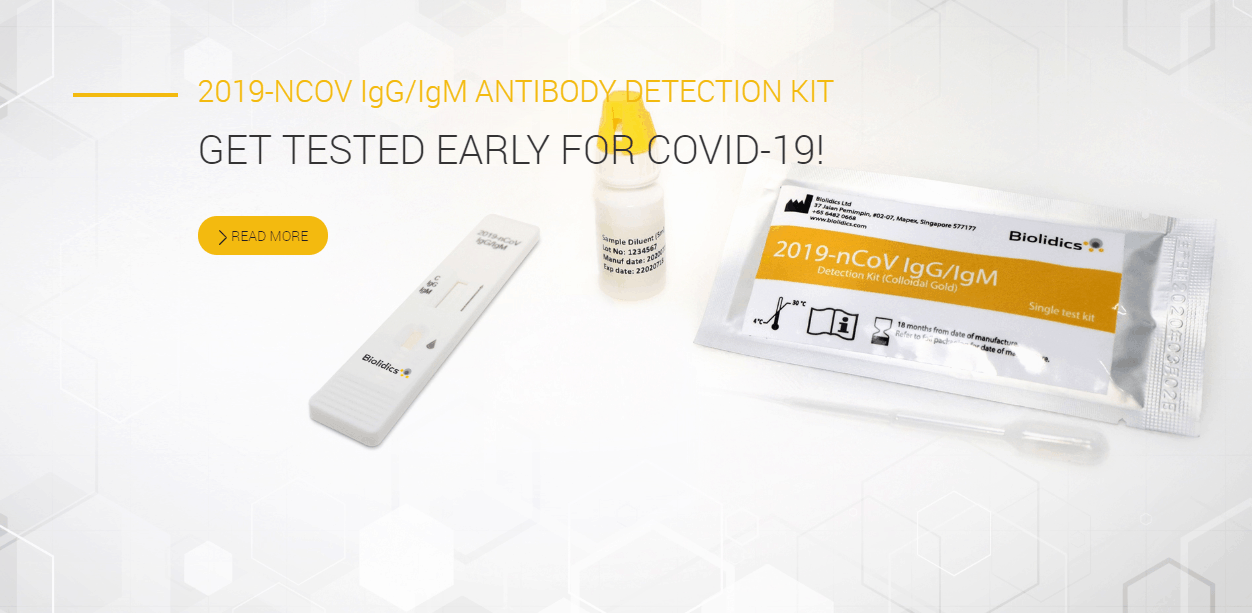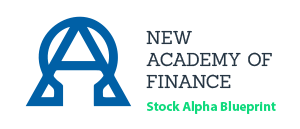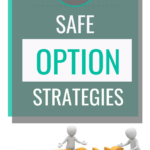[Update: I have previously written on Biolidics back in late-April when the counter has received a lot of hype from its COVID test kit being marketed in the US. I highlighted that investing in the counter at that time has got too many variables, a key being that the sale of its COVID test kit (manufacture in China and not locally produced) in the US (which was the key reason propelling its share price higher at that time) remains highly uncertain, given its partnership with a small bioscience company and heighten competition with so many players introducing their own test kits. Hence I warned that investors should take the news with a pinch of salt and not chase the counter. The company has since announced its test kit withdrawal in a statement issued on 28 June, resulting in its share price dropping by c.20% as of this writing. For those interested to find out about the background, you can take a quick read of the article below.]
Biolidics limited, a Singapore-based medical technology company has been hogging the limelight recently after inking a US distribution deal for its Covid-19 test kits. Its shares have been on a roller coaster ride, reaching as high as S$0.84 on 22 April before dropping back to the current level of S$0.45 after the disclosure of its US distribution partner.
Is the fuss over the stock hugely overhyped or is this a multi-bagger gem in the making?
I thought it will be interesting to do a little “sleuthing” of the company to see if it is worth an investment.
Do note that this article is purely an opinion piece and not one construed to recommend a sell or buy off the counter.
I believe the investment thesis of Biolidics rests on its foray into the US market for its COVID-19 rapid test kit. However, before that, a summary of what happened in the past couple of months.
[29 June update: The company issued a statement that it will be terminating its distribution agreement signed with Aytu Bioscience inc and instead will be signing a non-binding letter of intent with Aytu for a new joint development project. There might have already some concerns pertaining to Biolidics’ test kit when Aytu was selling more COVID test kits made by Zhejiang Orient Gene Biotech (Aytu’s original supplier) after the latter is being selected as being 1 of the 11 tests out of a total of 197 to receive Emergency Use Authorization from the FDA]
Background info
Biolidics stock has been relatively stagnant, hovering at around the S$0.20 level since the start of the year.
The stock gain interest sometime in late March, early April when the company announced that it plans to launch its rapid test kit for COVID-19. It has entered into a manufacturing agreement with a diagnostic kit manufacturer to customize and manufacture the rapid test kits.
In that announcement, Biolidics did not explicitly disclose who that diagnostic kit manufacturer was but said that the product is in compliance with ISO13485 requirements and has obtained provisional authorization by the Health Science Authority (HSA) for the rapid test kit to be used in Singapore.
In subsequent announcements on 1 April and 6 April, the company announced that its test kit was approved for use by the FDA of the Philippines and obtains CE marking for use in the European Union
These slews of positive news pushed its share price up by almost 50% to almost S$0.30.
So far so good.
At this point, it’s useful to take a step back and evaluate what has happened thus far.
Getting HSA conditional approval
HSA disclosed in an announcement on 24 March that, to address the urgent need for timely detection of COVID-19 infection, HSA has set up a provisional authorization process for tests intended for the detection and/or diagnosis of COVID-19 infection.
Based on the latest update, 24 companies are granted this provisional authorization! Biolidics ain’t just the only company that has been granted this provisional authorization by HSA.
In that HSA announcement, it was also made known that the manufacturing partner that Biolidics is working with is called Nanjing Vazyme Biotech Co.Ltd (Vazyme). More on this company later.
While HSA has given provisional authorization for Biolidics to export the product and market the product in Singapore, a quick check shows that MOH’s guidance on the use of Serology Rapid Tests Kits for Covid-19 Infection, dated 3 April 2020 stated that “Based on the currently available evidence, including local validation data, there is NO ROLE for COVID-19 serology rapid test kits in the clinical diagnosis of COVID-19 infections. Medical practitioners should not be using such serology rapid test in the evaluation of persons with symptoms of acute respiratory infection”.
Bottom-line: Singapore is not using this test-kit for diagnosis at present even though the product has gotten a provisional authorization to be marketed in Singapore.
Limited use of antibody testing for immediate diagnosis
This issue was also highlighted by SGX in a query to the company on 9 April which the company responded by saying that the company’s test kits are “for the detection of the Novel Coronavirus 2019” and not for diagnosis of COVID-19 infections.
This means that the product cannot be used as the sole means to CONFIRM that a patient has gotten the COVID-19 virus based on antibodies present. It is used as an initial testing and the presence of COVID-19 needs to be confirmed with supplementary testing.
So for example, a patient uses the test-kit and tested positive for antibodies. This could mean that he/she has a reasonably high probability of already having COVID-19 in the past and his/her immune system was robust enough to launch an antibody-forming immune response. However, at this stage, the patient might already have recovered.
If the test is negative, it means that antibodies are not present or in a small amount that is not detectable. However, that does not mean that the patient is free from COVID-19 as antibodies might not yet have been formed in the early stages of the infection or again, the amount of antibodies is too little.
Therefore, there is actually a limited value of using antibodies in the immediate diagnosis of a patient where COVID-19 infection is suspected. However, it could be useful in the identification of asymptomatic carriers during this outbreak. Also, it will help to support efforts to get people back to work. In Donald Trump’s words, the antibody tests “show us who might have developed the wonderful, beautify immunity”.
At this stage, it might be useful to rewind to the company, Vazyme, which has been disclosed as Biolidics’ manufacturing partner.
Vazyme Biotech
The company is focused on the development and production of enzymes and antibodies. In its website, the company has stated that its COVID-19 test kit solution has gotten the approval of the National Medical Products Administration (NMPA) for export.
This approval is important as companies providing COVID-19 rapid test kit solution that is not on NMPA approved list is no longer allowed to export their products after 1 April after complaints by some EU nations on the inferior quality of some of these COVID-19 related products (such as face mask etc) coming out from China.
This “emergency” approval was granted to Vazyme by NMPA on around 16 March 2020, bringing the total approved list in China to 19. Before that, Vazyme was not on the approved list.
Biolidics subsequently obtained approval on 27 March for the product to be manufactured and marketed under its brand: “Biolidics 2019-nCOV IgG/IgM Detection Kit (Biolidics Test Kits)”
Biolidics’ price started running up after US partnership disclosure
The real price kicker started from 20 April onwards where the price appreciated to S$0.38 and for the next two days, it appreciated to S$0.84 before its share price was halted pending, following a query by SGX about its share price movement.
This was triggered by an announcement on 20 April that the company has completed the listing of its COVID-19 Rapid Test Kits under Policy D on 17 April 2020. With the completion of the listing, the company is now able to distribute, market, and sell its COVID-19 Rapid Test Kits in the USA.
The market viewed this announcement extremely positively and Biolidics share price appreciated substantially over the next couple of days.
However, without a significant presence in the US, Biolidics will need a distribution partner with a presence in the US to mass commercialize the test kit.
This announcement was made on 23 April, following a query by SGX again on its share price movement.
It was announced that Biolidics has on 23 April, entered into a distribution agreement with Aytu Bioscience, Inc (Aytu) to appoint Aytu as an exclusive distributor for the Company’s rapid test kits for the Novel Coronavirus 2019 in the US for one year from the agreement, with an option for an additional one-year term.
Under the terms, Aytu commits to purchase from the Company an initial 500,000 test kits within one business day of the agreement, and Aytu is required to purchase no less than 1,250,000 test kits within the first 3 months from the date of the agreement to retain its exclusivity.
Theoretically, that should be positive to Biolidics. However, Biolidics’ share price dropped significantly following this announcement. Why so?
It could be a case of selling the news or it could also be for the fact that Aytu is a nano-cap bioscience company (current market cap of approx. US$80m) instead of a large pharmaceutical company.
A large pharmaceutical company will likely have its test kit available and not required to partner with Biolidics. Hence the only route for the potential commercialization of its test kit is likely through a small pharma company like Aytu.
Background on Aytu
It is interesting to know about the background of Aytu at this point. At the start of March 2020, the share price of Aytu was US$0.35, valuing the company at US$20m market cap. Yes, you heard me right, only US$20m in market cap at the start of March 2020 and now its share price has increased 4x! (at its peak, it was trading at US$2/share recently, valuing the company at US$114m).
The huge increase in Aytu’s share price was after the company announced on 10 March that the company has secured an exclusive US distribution agreement for COVID-19 Point-of-care rapid test with a Hong Kong Corporation called L.B Resources, Limited, which licensed North American rights from product developer Zhejiang Orient Gene Biotech Co., Ltd.
Subsequently, in an announcement on 15 April, Aytu highlighted that the company has sold/allocated 100,000 test kit and is awaiting delivery of the next 500,000 test kits with an order for a further 1,000,000 test kits which has been accepted by the manufacturer.
However, on 17 April, Fox News ran an article stating that COVID test kits made by Zhejiang Orient Gene Biotech are not on the approved list of NMPA but are still being marketed in the US.
Aytu made the same day response about the issue, saying that Zhejiang Orient is actively seeking approval from NMPA and that the delivery of the rapid test kits remains on schedule, despite the export halt. This is likely because the COVID test kits have already been shipped out of Zhejiang Orient before the April 1 ban.
The emphasis in the announcement was, however, being turned to the possibility of securing another rapid test kit for US distribution. This time around, Aytu highlighted that the test is already approved by China’s NMPA and has been regularly exported out of China.
We now know that this alternative test kit was from Biolidics, which Aytu announced on 23 April.
Interesting to note that in Aytu’s announcement on the 23rd, there was no mention of the product being manufactured from China or that the product that Biolidics is providing to them is being sourced from China. It was noted that the test kit has been issued provisional authorization for distribution by HSA and authorized for export from Singapore and that also the test kit will be supplied from Biolidics’ facility in Singapore.
The announcement was probably carefully crafted to instill confidence in the product quality since it is coming from Singapore, instead of China, where as I mentioned, there has been a lot of negative backlash from the global community about their “inferior” COVID-19 related products.
The introduction of Biolidics’ test kits provided an alternative solution for Aytu to continue distributing Covid-19 rapid test kits in the US, given that its initial collaboration with Zhejiang Orient might be in limbo if the latter fails to obtain NMPA approval.
FDA desperate to get testing kits into the US
At this stage, it is also interesting to note that Aytu has been able to market its rapid test kit solution despite limited track record in this field, solely because the US FDA is in a desperate scramble to get tests to practitioners.
The FDA is giving companies 15 business days to prepare an Emergency Use Authorization (EUA) submission and is letting them operate in the meantime to meet the demand for tests. It is in that context that Aytu entered the COVID-19 market. In normal circumstances, the approval process from the FDA would have taken months if not years, instead of the current days due to the desperate testing shortfall situation of the US.
However, at present, neither Aytu nor its manufacturing partners are listed among FDA’s EUA for, In Vitro Diagnostic products, the list currently comprised of 48 companies as of this writing. Granted that there is a huge backlog of test manufacturers waiting to be approved.
However, not being on the list does not mean that Aytu cannot market its test kit products. It can still market according to FDA in this non-binding recommendation report (under policy section D). It is just that the company will need to list down the following statements in their test reports:
- This test has not been reviewed by the FDA.
- Negative results do not rule out SARS-CoV-2 infection, particularly in those who have been in contact with the virus. Follow-up testing with a molecular diagnostic should be considered to rule out infection in these individuals.
- Results from antibody testing should not be used as the sole basis to diagnose or exclude SARS-CoV-2 infection or to inform infection status.
- Positive results may be due to past or present infection with non-SARS-CoV-2 coronavirus strains, such as coronavirus HKU1, NL63, OC43, or 229E.
Given the ease of getting “approval” for serology testing which is less complex than molecular testing, the competition will likely be extremely intense for such products and the lack of a competitive edge in terms of track record and know-how in such form of diagnostics could potentially see Aytu struggling to sell its testing kits.
However, given the huge demand for a testing kit at present due to the need for widespread mass testing in a bid to open up the economy, there is no saying that Aytu and Biolidics cannot benefit from this current scenario where demand outstrips supply, despite the risk of inferior or contaminated testing products from China, as per this article.
Conclusion
Biolidics is currently sourcing from an approved China exporter of rapid testing kits and in turn rebranding it under its name to be marketed in the US with the help of Aytu. Aytu, on the other hand, is banking on the reputation of a Singapore branded product, approved by HSA, to give it an edge to market the test kit in the US.
That window of opportunity might, however, be closing fast for both Biolidics and Aytu as more companies jump onto the bandwagon to provide antibody testing (apparently more than 90 companies providing serology testing is entering or has entered the market).
An investor in Biolidics should closely monitor the development of Aytu and what the latter discloses in terms of their sales update.
I will be watching the developments of Biolidics on the sideline. There are too many variables at present which elevate the company risk profile. To be honest, the share price is appreciating solely because of the COVID rapid test kit being marketed in the US and not because the company has a huge pipeline of products waiting to be commercialized in the coming months.
I don’t see the company having a competitive edge in a solution that will result in widespread adoption globally to detect COVID-19. There is also no “guarantee” when the US might start to tighten the regulatory framework about serology testing.
According to Federal Law, if a test has not been authorized by the appropriate agency, in this case given proper approval by FDA to be in the EUA list (currently only 4, out of 90, antibody testing developers have been granted authorization), it must be conducted in high-complexity labs.
According to Kelly Wroblewski, director of the infectious disease programs for the Association of Public Health Laboratories, “If you are getting an antibody test and it’s being conducted in your physician’s office, it’s a red flag”. No actions have been taken against doctors thus far.
That is not to say that the current “wild, wild west” scenario cannot persist, with demand for antibody tests remaining high as states in the US clamor to reopen their economies. This is despite the WHO only recommending for such testing in a “research setting” and should not be used in clinical decision-making.
In the meantime, Biolidics’ shareholders should prepare for a roller-coaster ride.
Do Like Me on Facebook if you enjoy reading the various investment and personal finance articles at New Academy of Finance. I do post interesting articles on FB from time to time which might not be covered here in this website.
Join our Telegram broadcast: https://t.me/gemcomm
SEE OUR OTHER WRITE-UPS
- 4 RECESSION-RESISTANT STOCKS WITH A FORTRESS BALANCE SHEET
- 3 REASONS TO KEEP INVESTING EVEN IN A DOWNTURN
- 4 STOCKS WITH MORE THAN 80% RECURRING REVENUE OWNED BY GURUS
- WHEN TO BUY STOCKS IN A RECESSION? THE IDEAL TIME TO PICK A BOTTOM
- HOW TO INVEST IN A RECESSION OR BEAR MARKET (2020 EDITION)
- TOP 5 UNDERVALUED SINGAPORE DIVIDEND STOCKS (2020)
Disclosure: The accuracy of the material found in this article cannot be guaranteed. Past performance is not an assurance of future results. This article is not to be construed as a recommendation to Buy or Sell any shares or derivative products and is solely for reference only.










1 thought on “Biolidics: Overhyped or multi-bagger gem? [June Update]”
the way its share price behaves, this stock becomes suitable for those who speculate and trade on momentum.